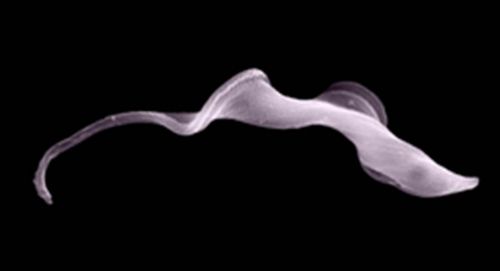
13/12/2017
ALBA Synchrotron Works for People’s Health
ALBA Synchrotron Works for People’s Health
Two recent works remind us that ALBA synchrotron is a very valuable tool to help develop new drugs.
On one hand, using the MIRAS beam line of the ALBA synchrotron (infrared radiations), researchers from the Universitat Autònoma de Barcelona (UAB) and the ALBA Synchrotron have demonstrated in a paper the capability of metalosomes - aggregates made of phospholipids and metal complexes - to interact with cells and release carbon monoxide in a controlled way (CO release can be beneficial because of its anti-inflammatory, vasodilator and cardio protective properties).
On the other hand, in another publication, a team led by researchers from the Universitat Politècnica de Catalunya (UPC) has unveiled the mechanism of action of two drugs, FR60 and JNI18, which cure 100% of mice with sleeping sickness. Using X-rays of the ALBA XALOC beam line, they have observed how these drugs perfectly stacked on the Trypanosoma brucei’s DNA, the parasite that causes the disease (image). Blocking and inflicting specific damage on its DNA, the parasite cannot reproduce and finally dies after 4-5 days.
On one hand, using the MIRAS beam line of the ALBA synchrotron (infrared radiations), researchers from the Universitat Autònoma de Barcelona (UAB) and the ALBA Synchrotron have demonstrated in a paper the capability of metalosomes - aggregates made of phospholipids and metal complexes - to interact with cells and release carbon monoxide in a controlled way (CO release can be beneficial because of its anti-inflammatory, vasodilator and cardio protective properties).
On the other hand, in another publication, a team led by researchers from the Universitat Politècnica de Catalunya (UPC) has unveiled the mechanism of action of two drugs, FR60 and JNI18, which cure 100% of mice with sleeping sickness. Using X-rays of the ALBA XALOC beam line, they have observed how these drugs perfectly stacked on the Trypanosoma brucei’s DNA, the parasite that causes the disease (image). Blocking and inflicting specific damage on its DNA, the parasite cannot reproduce and finally dies after 4-5 days.
More news
26/03/2014
New companies in the UAB Research Park
18/03/2014
The public-private partnership ESTEVE-UAB is bearing fruit
11/03/2014
Barcelona ranked fourth place among the most attractive European cities for investors
24/02/2014
Zero2infinity offers sightseeing flights in the stratosphere
18/02/2014
Students from Harvard visited the Barcelona Synchrotron Park and ALBA
11/02/2014
Applications of the Alba synchrotron in the materials and chemistry industries









